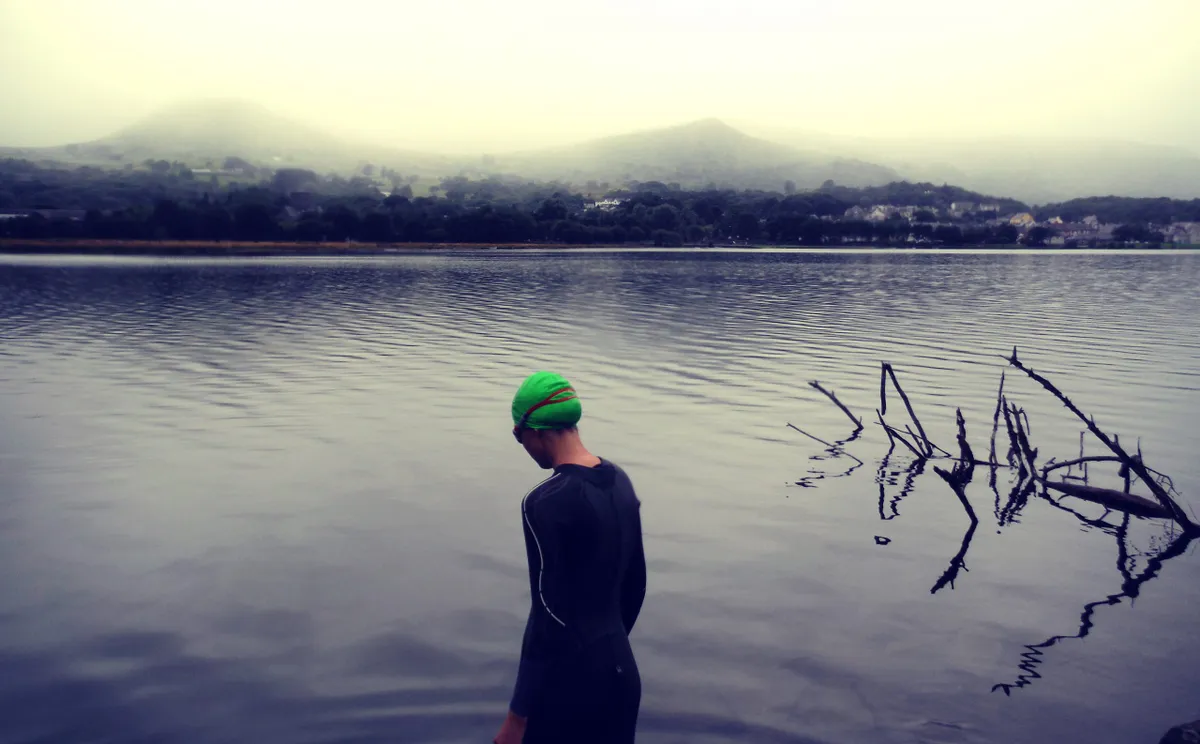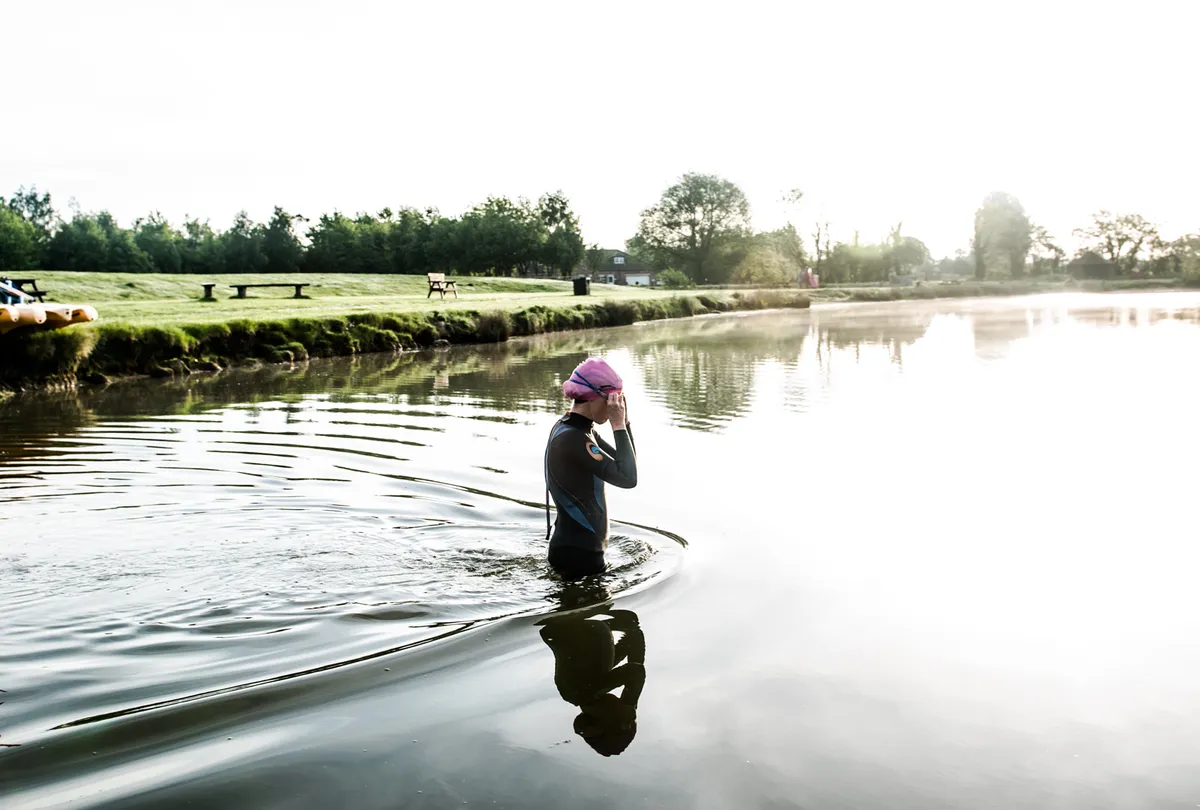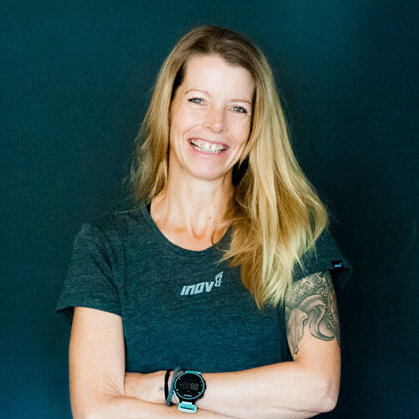My daughter commented the other day that wetsuits smell funny. I said that all mine smell of terror. We laughed, but for me it’s absolutely true; the smell of neoprene is associated with fear.
When I started in triathlon way back in 2006 I could barely swim. I spent hours going up and down my local pool with a swim pull buoy and hours at home studying YouTube videos on technique.
Finally, after three months of very hard work, I could swim 30 lengths of fairly decent front crawl. Which wasn’t enough to get me through the Ironman 70.3 I’d signed up to in Wimbleball, Exmoor, but it was a start.
I also booked onto an Ironman familiarisation weekend in Sherborne (the UK venue before Bolton), aimed at long-course athletes. Ironman was my ultimate goal, so I thought this camp would be perfect for me. I’ll skim over my terrible bike skills that this weekend highlighted and focus on the swimming aspect of it.
The coaches had two swim sessions planned for us and, on the first day, I turned up to the side of the lake in the Sherborne Castle grounds. I was naively excited as I had never actually swum in a lake before.
I wrestled myself into the second-hand wetsuit I’d bought the week before, it seemed to fit alright. The coach took one look at me and shook his head.
"That’s too big for you” he said. “You’ll need to get the next size down.” The suit actually seemed pretty tight to me, so I wondered how I would squeeze my body into a smaller one…
Once everyone was ready, we filed into the lake, one by one. It was quite early in the year and water was definitely on the chilly side. As I got deeper, the cold water filled my wetsuit. This was a peculiar feeling and not all together very pleasant.
As I reached the point where my feet could no longer reach the bottom, I looked around and saw everyone else starting to swim. I took a deep breath and plunged my face into the water.
“Holy sh*t” I spluttered, pulling my head out of the water, gasping and spluttering. That’s not how it felt in the pool. I tried again and had a similar reaction. And now I seemed to be making some odd noises. A strange squeaking when I breathed.
And much to my total humiliation, I couldn’t seem to stop it. Hopefully nobody will notice, I thought. But one of the coaches had realised that I wasn’t with the main group and came back to find me.
“You’re just hyperventilating,” he said, matter of factly. “It’s pretty normal for first timers.”
That morning the same coach spent the full hour with me. Teaching me to put my face in the water and breathe normally. It wasn’t easy and it certainly wasn’t the amazing swim that I planned the day before. But, by the end of the camp, I could officially swim in open water.

I’ve been open-water swimming for over 14 years, and yet I still get incredibly nervous before I get into the water and sometimes experience huge panic attacks during swims.
Some people – actually, quite a lot of people – ask me why I don’t just give up? It’s a good question. Why keep doing something that causes such anxiety and, at times, can make me quite unhappy?
There are many reasons. The first being I simply refuse to give up. I want to swim long distances and I won’t accept that sometimes my brain really doesn’t want to come along for the ride.
The second is that sometimes my swims are really enjoyable. In fact, these days a lot of my swims are panic-free. But if I ever dare to get a little cocky, I get a (not so) gentle reminder.
The third reason is that I have a big and (very) scary event that I’ve been trying to do for a very long time, called the Arch to Arc.
This challenge is, in my opinion, the hardest triathlon in the world and involves swimming the English Channel. And to swim the Channel, you have to train in open water, preferably the sea, a LOT.
So now you understand, I have to keep swimming, there’s no other option.
But how have I gone from barely being able to get into a lake to being able to swim for 11 hours in the Atlantic? It takes constant work and endless patience.
Also, I have to accept that sometimes swimming is a miserable experience for me. Sometimes my swims are shorter than they should be. And sometimes they can even lead to a DNF.
It used to destroy me, but as I’ve become older and more experienced, I’ve learnt to be more accepting of my fears, instead of beating myself up constantly. And this is the reality when you’re fighting demons.
It’s often one step forward and two steps back. But the only way they ever truly beat you is when you give up. So, while I’m still putting on several layers of neoprene and fiddling nervously with my goggles, I’m still winning.

Claire’s top tips on overcoming your open-water fears…
One step at a time
The only way I could get into the lake for my first Ironman, was an inch at a time. I allowed myself the option of getting out if it got too much. This helped me relax and feel more in control.
Let the crowds go
Open-water swim races or triathlons can be a real fight at the start. This can lead to you getting your goggles kicked off or getting an elbow in the face.
If you’re already a nervous swimmer, this could end your event before it’s even started. I always let the bulk of the competitors get out the way before I start swimming.
For the average athlete, a minute is neither here nor there and it means you start your race without getting into the washing machine.
Understand the beast
Panic attacks are unpleasant, but in the middle of a lake or choppy sea, they can be pretty damn terrifying. When I feel them coming on, I literally imagine them like a wave, washing over me. It builds slowly, reaches a peak and then eases off.
Understand that the feeling passes and even practice continuing your stroke as it happens. You may not be able to eliminate your panic attacks, but by working with them, they cease to have the same control over you.
Reduce the pressure
Try to avoid setting large goals during your training sessions. If you want to get a 90-minute swim done, but you are already stressed out before you even get in the water, agree to just swim for 30 minutes.
You’ll be surprised by how much better you feel by doing this and how much you then enjoy the swim. And, more often than not, you will push on to your original goal.
